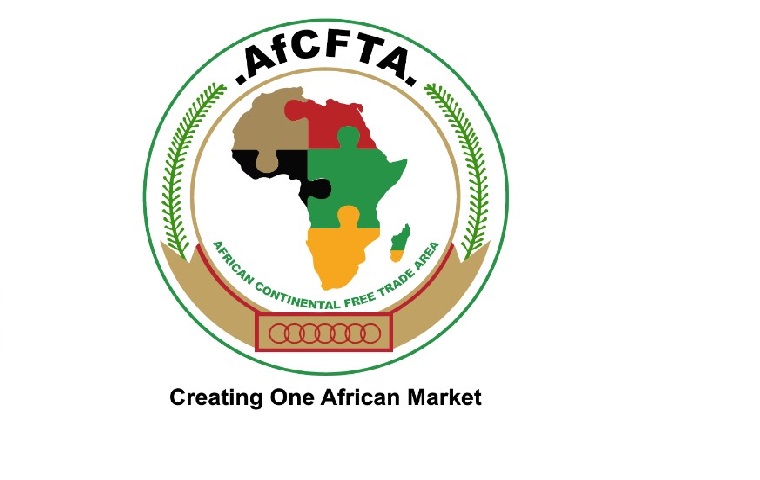The African Continental Free Trade Area (AfCFTA) presents Nigeria with an unprecedented opportunity to expand its economic reach, deepen industrialisation, and stimulate inclusive growth. As the largest economy and most populous nation in Africa, Nigeria is positioned to be a cornerstone of the agreement. Yet, the full potential of AfCFTA will only be realised if Nigeria takes deliberate, strategic steps to address structural weaknesses and reposition its economy for regional competitiveness.
At the core of Nigeria’s challenge is the mismatch between potential and preparedness. Despite signing the agreement in 2019 and ratifying it shortly after, the country’s level of participation remains minimal. Intra-African trade still accounts for less than 15 percent of Nigeria’s total trade volume, a stark contrast to countries like South Africa and Egypt that have moved more decisively to tap into continental supply chains. The reality is that without a significant overhaul of trade-enabling infrastructure and economic policy, Nigeria risks being a passive player in a game it should be leading.
A key area demanding urgent attention is infrastructure. Nigeria’s roads, railways, ports, and power supply systems are plagued by inefficiencies and neglect. Transporting goods from Kaduna to Lagos can take days due to road degradation and insecurity. Power outages continue to raise production costs and deter manufacturers from expanding operations. For Nigerian products to be competitive across Africa, the logistics chain must be significantly improved. This includes rehabilitating rail lines to link inland production hubs to ports, dredging seaports outside Lagos to ease congestion, and upgrading border facilities to facilitate smoother customs processes.
The issue of competitiveness is further complicated by the country’s overreliance on oil and raw commodity exports. AfCFTA is not just about moving goods, it is about moving value-added goods. Nigeria must focus on boosting its industrial and manufacturing capacity, particularly in sectors such as agro-processing, pharmaceuticals, textiles, and automotive components. These are areas where regional demand is growing and where Nigeria has a comparative advantage if the right policies are in place. Export incentives, tax holidays for manufacturers, and affordable credit for SMEs are essential to catalyse industrial growth.
Equally important is the simplification of trade procedures. Nigerian exporters continue to battle with excessive bureaucracy, multiple regulatory agencies, and unpredictable policies. This creates friction that undermines the efficiency gains AfCFTA aims to deliver. Streamlining customs processes, digitising trade documentation, and harmonising product standards with regional counterparts are necessary reforms. Without these changes, Nigerian businesses will continue to lose out to competitors in Ghana, Kenya, and Rwanda who already enjoy more streamlined trade regimes.
Security also plays a critical role in shaping Nigeria’s ability to trade regionally. Cross-border insecurity and armed conflict in parts of the northwest and northeast have made certain trade corridors unsafe, discouraging investment and limiting access to regional markets. Addressing this requires not only a security response but also economic interventions that create jobs and reduce the incentive for violence.
The informal sector, which makes up a substantial portion of Nigeria’s economy, must not be left out of the AfCFTA equation. Many small traders and cross-border merchants already engage in commerce that falls under the radar of formal systems. By extending simplified trade regimes, mobile payment solutions, and cooperative structures to these informal players, Nigeria can expand its trade footprint and ensure that AfCFTA benefits are shared more broadly.
Nigeria also needs to be more proactive in engaging with AfCFTA institutions. Rule-setting around sensitive products, dispute resolution, digital trade, and intellectual property is ongoing. Failure to engage actively in these discussions could result in Nigeria operating within frameworks that do not fully align with its economic interests. Policymakers must articulate clear national trade objectives and ensure they are well represented in continental negotiations.
A fundamental issue underlying all these priorities is policy coherence. Nigeria has struggled with inconsistent and short-term economic policies that change with political cycles. For AfCFTA to deliver its promise, Nigeria must adopt a long-term trade and industrial strategy, backed by political will and institutional continuity. This includes investing in trade-related education and building the capacity of agencies responsible for implementation.
The private sector, too, must be brought into the fold. Business associations, manufacturers, logistics providers, and fintech companies all have a role to play in shaping and executing Nigeria’s AfCFTA agenda. Government must work hand-in-hand with these stakeholders, not just as regulators but as partners.
In essence, AfCFTA is not a silver bullet for Nigeria’s economic challenges; it is a platform. How Nigeria positions itself on that platform will determine whether it becomes a leader in Africa’s economic future or a bystander. The choices made now will shape the country’s trade destiny for decades. Nigeria must act with urgency, clarity, and ambition. The time for hesitation is over.





